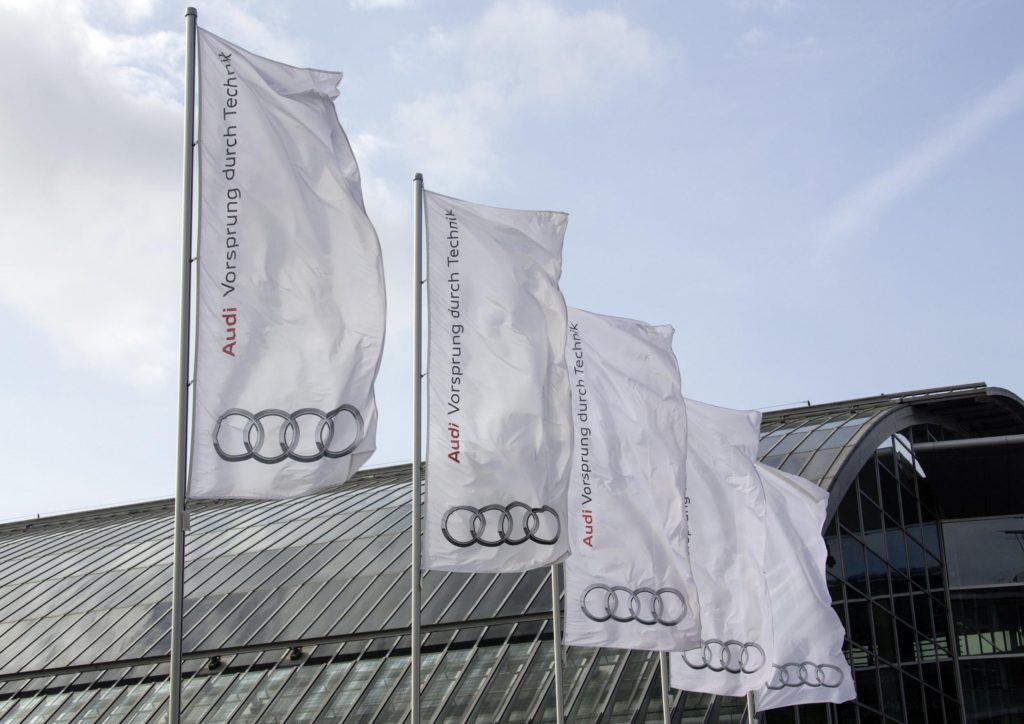Audi in trouble with German Government as emissions recalls issued
02 June 2017

2 June 2017
The Volkswagen (VW) diesel scandal continues to rumble on, with premium manufacturer Audi, part of the VW Group, now being accused of cheating emissions tests by the German Government.
While VW is facing lawsuits in the US and Italy, as well as potential litigation in other countries where their vehicles have been sold with cheat devices fitted to monitor vehicle usage and adjust emissions for testing, this is the first time that Audi has been publicly accused in Germany. The Transport Ministry has said it has asked the company to recall A8 and A7 models built between 2009 and 2013.
In total, the recall will cover around 24,000 vehicles, 14,000 of which are in Germany. The ministry believes these Euro-5 engine cars emit around twice the legal limit of nitrogen oxides (NOx) when the steering wheel is turned more than 15 degrees. Audi has until 12 June to provide a comprehensive plan to refit the recalled vehicles. The manufacturer has already issued the notice to vehicle owners.
In a statement, the manufacturer said: ′For several months now, Audi has been systematically investigating the emissions of a large number of engine-transmission combinations in certain driving conditions. The latest analyses of A7 and A8 automobiles of model years 2010 through 2013 with V6 and V8 engines certified according to the EU5 emission standard have revealed that in certain situations, NOx emissions are between 20 and 100% above the limit.’
′The reason is that in some situations, engine speed is unfavourably influenced by the transmission software, which can have a negative impact on the engine’s emissions. Audi has agreed with Germany’s Federal Motor Transport Authority that it will actively approach the relevant customers and recall the affected cars. 14,000 of those 24,000 cars are registered in Germany.’
The models affected are different to the ones fitted with 3.0-litre engines which Audi has admitted were fitted with devices in the US. This affected 80,000 vehicles including the A6, A7 and Q7 models as well as Porsche and VW brand cars.
The manufacturer was just recently saying how effort would be needed to move on from the Dieselgate scandal, which engulfed the VW Group in 2015. Speaking at the company’s annual general meeting (AGM) in May 2017, Audi chairman Rupert Stadler said: ′2016 was not a lost year for us. We made great progress with clearing up the diesel crisis. It has had a serious impact on us. A task force for the diesel issue headed by Doctor Bernd Martens is working worldwide literally day and night together with colleagues from Volkswagen. This task force is driving solutions for our customers. And it is working on settlements with the authorities.
′As a consequence of this diesel crisis, we are carrying out far-reaching reviews at Audi. Above all, this involves improving processes, reallocating responsibilities and adjusting our organization. We are establishing a new and expanded compliance structure with new reporting and control systems. The process of clearing up is not yet completed. We will continue until the job is done – with the tenacity that our company is well known for. We at Audi are acting with absolute determination to make sure that nothing like the diesel crisis ever happens again.’
VW has so far denied any wrongdoing in Europe, although it has recalled vehicles for software updates to remove any potential for emissions irregularities. In the US, the company is facing a $25 billion (€22.6 billion) bill for compensation, vehicle buybacks and lawsuits.
Audi is looking to move away from diesel engines following the scandal, as is the whole VW Group, and is preparing for the arrival of its first electric vehicles (EVs) by 2020. In total, the company plans to have three models on the road, with the first, the Q8, scheduled to be launched in 2018. By 2025, the company plans for one third of its vehicle fleet to be electric, with petrol and diesel making up the rest.
The manufacturer’s aim to be less reliant on diesel is apparent with the launch of the next generation of its ′fast’ crossover vehicle, the SQ5. It its previous form, the vehicle was popular in its diesel variant; however, Audi has put the new model on sale with a 3.0-litre petrol engine, a diesel is due for release in 2018, leaving a gap whereby the petrol version is its clear champion in the sector. This is a strategy that VW itself is aiming to follow, moving away from diesel engines to focus on petrol and alternative fuels.
Photograph courtesy of Audi